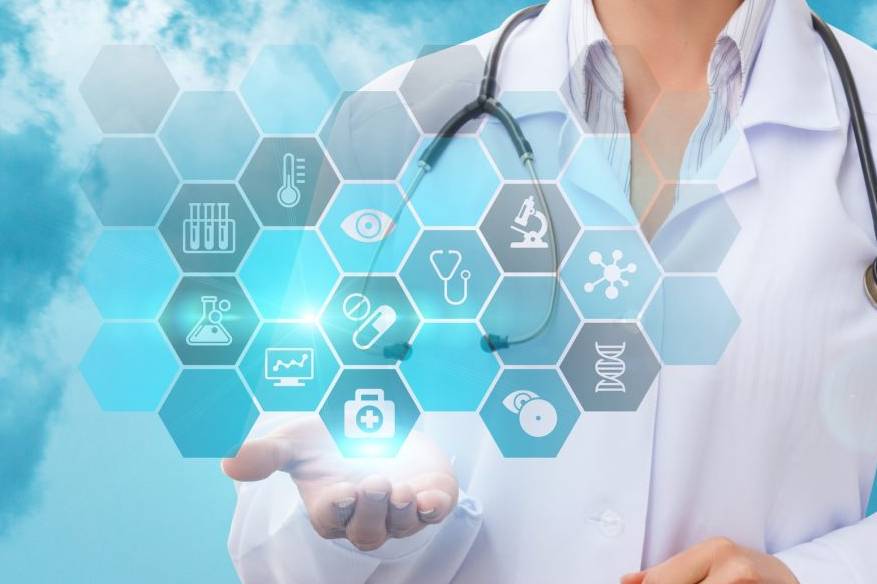Role and Responsibilities: Health Informatics Specialists play a vital role in healthcare organizations by managing and analyzing health-related data to improve patient care, streamline processes, and ensure compliance with regulations. Their responsibilities may include:
- Implementing and managing electronic health record (EHR) systems.
- Developing and maintaining clinical decision support tools.
- Analyzing health data to identify trends and patterns.
- Ensuring the security and privacy of health information.
- Collaborating with healthcare providers and IT professionals to optimize health information systems.
Skills Required: Health Informatics Specialists require a combination of technical and interpersonal skills, including:
- Strong data analysis skills to interpret health data and derive meaningful insights.
- Proficiency in information technology, including database management and software applications.
- Excellent communication skills to collaborate with healthcare professionals and communicate complex information to non-technical stakeholders.
- Attention to detail and critical thinking to ensure accuracy and quality in data analysis and reporting.
Training and Education: Most Health Informatics Specialists have a bachelor’s or master’s degree in health informatics, healthcare administration, information technology, or a related field. Some positions may require specific certifications, such as:
- Certified Health Data Analyst (CHDA) from the American Health Information Management Association (AHIMA).
- Certified Professional in Healthcare Information and Management Systems (CPHIMS) from the Healthcare Information and Management Systems Society (HIMSS).
Career Progression and Salary Potential: Health Informatics Specialists can advance their careers by gaining experience and expertise in specialized areas of health informatics, such as clinical informatics, population health, or healthcare data analytics. With experience, they may take on leadership roles, such as Health Informatics Manager or Chief Information Officer (CIO).
According to the U.S. Bureau of Labor Statistics, the median annual wage for medical and health services managers, which includes Health Informatics Specialists, was $104,280 in May 2020. Salary potential can vary based on factors such as location, level of experience, and the size and type of healthcare organization.
Clinical Informatics Manager
Role in Healthcare Organizations: Clinical Informatics Managers play a key role in healthcare organizations, particularly in hospitals and clinics, where they oversee the implementation and management of electronic health record (EHR) systems and other health information technologies. They bridge the gap between clinical workflows and information technology to ensure that systems meet the needs of healthcare providers and support optimal patient care.
Responsibilities: Clinical Informatics Managers have a range of responsibilities, including:
- Leading the implementation and optimization of EHR systems and other clinical information systems.
- Collaborating with healthcare providers to understand their needs and workflows.
- Ensuring that systems comply with regulatory requirements, such as HIPAA and Meaningful Use.
- Training and educating staff on the use of health information technologies.
- Analyzing data to identify opportunities for improving clinical processes and patient outcomes.
Skills and Qualifications: Clinical Informatics Managers typically have a clinical background, such as nursing or medicine, combined with expertise in health informatics. They also need strong project management skills to oversee the implementation of complex systems. Other key skills and qualifications include:
- Knowledge of clinical workflows and healthcare operations.
- Proficiency in health information technology, including EHR systems.
- Strong communication and interpersonal skills to collaborate with multidisciplinary teams.
- Analytical and problem-solving skills to identify and address issues related to health information systems.
Career Advancement Opportunities: Clinical Informatics Managers can advance their careers by gaining additional experience and expertise in areas such as:
- Specializing in a specific clinical area, such as oncology or cardiology, to become a subject matter expert.
- Pursuing advanced education, such as a master’s degree in health informatics or a related field.
- Taking on leadership roles, such as Director of Clinical Informatics or Chief Information Officer (CIO), where they oversee informatics initiatives across an organization.
Overall, Clinical Informatics Managers play a crucial role in ensuring that health information technologies support high-quality, efficient, and safe patient care in healthcare organizations.
Health Data Analyst
Role in Analyzing Health Data for Insights and Decision-Making: Health Data Analysts play a crucial role in healthcare organizations by analyzing large sets of health-related data to identify trends, patterns, and insights that can inform decision-making and improve patient care. They work with various types of data, including electronic health records (EHRs), medical claims data, and patient satisfaction surveys, to help healthcare providers and administrators make informed decisions.
Skills Needed: Health Data Analysts require a combination of technical and analytical skills, including:
- Proficiency in data analysis and statistical software, such as R, Python, SAS, or SPSS.
- Knowledge of database management systems, such as SQL, for data extraction and manipulation.
- Strong analytical and critical thinking skills to interpret complex data sets.
- Excellent communication skills to present findings and recommendations to non-technical stakeholders.
Training and Education: Health Data Analysts typically have a bachelor’s or master’s degree in data analytics, health informatics, statistics, or a related field. Some positions may require specific certifications, such as:
- Certified Health Data Analyst (CHDA) from the American Health Information Management Association (AHIMA).
- Certified Analytics Professional (CAP) from the Institute for Operations Research and the Management Sciences (INFORMS).
Challenges and Future Trends: Health Data Analysts face several challenges in analyzing health data, including:
- Managing and analyzing large and complex data sets, often from disparate sources.
- Ensuring data quality and accuracy to generate reliable insights.
- Protecting patient privacy and complying with regulatory requirements, such as HIPAA.
Future trends in health data analytics include the use of big data analytics to analyze large volumes of data from sources such as wearables and social media, as well as the use of predictive analytics to forecast health outcomes and trends. As healthcare organizations continue to adopt electronic health records and other health information technologies, the demand for skilled Health Data Analysts is expected to grow.
Training and Education
Degree Programs in Health Informatics:
- Bachelor’s Degree: A Bachelor’s degree in Health Informatics typically provides a broad foundation in health information technology, data management, and healthcare systems. It prepares students for entry-level positions in health informatics.
- Master’s Degree: A Master’s degree in Health Informatics offers advanced training in health information technology, data analytics, and healthcare management. It prepares students for leadership roles in health informatics.
- PhD: A PhD in Health Informatics focuses on research and scholarship in health information technology, data science, and healthcare delivery. It prepares students for academic and research careers in health informatics.
Certifications:
- Certified Health Data Analyst (CHDA): Offered by the American Health Information Management Association (AHIMA), the CHDA certification validates expertise in health data analysis and management.
- Certified Professional in Healthcare Information and Management Systems (CPHIMS): Offered by the Healthcare Information and Management Systems Society (HIMSS), the CPHIMS certification demonstrates proficiency in health information technology and management.
Continuing Education and Professional Development:
- Professional organizations, such as AHIMA and HIMSS, offer continuing education programs, webinars, and conferences to keep health informatics professionals updated on the latest trends and technologies.
- Universities and online platforms offer courses and certificate programs in specialized areas of health informatics, such as data analytics, cybersecurity, and telehealth.
- Networking events and professional associations provide opportunities for health informatics professionals to connect with peers and experts in the field and exchange knowledge and best practices.
Skills for Success
Technical Skills: Health informatics professionals need proficiency in databases, including SQL, to manage and analyze health data. Knowledge of programming languages such as R or Python is essential for data analysis and software development. Familiarity with electronic health record (EHR) systems and health information exchange (HIE) platforms is also valuable.
Analytical Skills: Health informatics professionals must be adept at data analysis and problem-solving. They should be able to identify trends, patterns, and insights in health data to inform decision-making and improve patient outcomes.
Communication Skills: Effective communication is crucial in health informatics, as professionals need to convey complex information to non-technical stakeholders, including healthcare providers, administrators, and policymakers. Clear and concise communication is essential for successful collaboration and project implementation.
Adaptability and Continuous Learning: The field of health informatics is constantly evolving, with new technologies, regulations, and best practices emerging regularly. Health informatics professionals must be adaptable and willing to learn new skills and technologies to stay current in the field. Continuing education and professional development are essential for success in health informatics.
Challenges and Future Trends
Privacy and Security Concerns: Ensuring compliance with regulations such as the Health Insurance Portability and Accountability Act (HIPAA) is a significant challenge in health informatics. Protecting patient privacy and securing health data from unauthorized access or breaches is essential.
Interoperability of Health Systems and Data Exchange: Integrating and exchanging health data across different systems and platforms is a complex challenge in health informatics. Achieving interoperability is crucial for enabling seamless communication and data sharing among healthcare providers and organizations.
Advancements in Technology: Rapid advancements in technologies such as artificial intelligence (AI), machine learning, and telemedicine are transforming the field of health informatics. These technologies have the potential to improve diagnostic accuracy, streamline healthcare delivery, and enhance patient outcomes.
Career Growth Opportunities in Emerging Areas: Emerging areas such as precision medicine and population health management offer significant career growth opportunities in health informatics. Professionals with expertise in these areas are in high demand as healthcare organizations seek to leverage data-driven approaches to improve patient care and outcomes.
Conclusion
Recap of the Importance of Health Informatics in Healthcare: Health informatics plays a crucial role in improving the efficiency, effectiveness, and delivery of healthcare services. By harnessing the power of information technology, data science, and healthcare knowledge, health informatics professionals help healthcare organizations optimize patient care, streamline processes, and drive innovation. From managing electronic health records to analyzing health data for insights, health informatics is at the forefront of transforming healthcare delivery.
Encouragement for Pursuing a Career in Health Informatics: If you are passionate about using technology to make a positive impact on healthcare, a career in health informatics may be the perfect fit for you. The field offers diverse opportunities for growth and advancement, as well as the chance to contribute to improving patient outcomes and healthcare systems. With the demand for health informatics professionals on the rise, now is an exciting time to embark on a career in this dynamic and rewarding field.
Resources for Further Exploration:
- Professional Organizations: Joining organizations such as the American Medical Informatics Association (AMIA), Healthcare Information and Management Systems Society (HIMSS), or the American Health Information Management Association (AHIMA) can provide valuable networking opportunities and access to resources and professional development opportunities.
- Job Boards: Websites like Indeed, Glassdoor, and LinkedIn are great resources for exploring job opportunities in health informatics. Specialized job boards such as HealthITJobs.com and Healthcare IT Central also focus on health informatics and related positions.
- Continuing Education: Consider pursuing additional certifications or advanced degrees in health informatics to enhance your skills and qualifications. Many universities offer online programs and courses in health informatics that allow you to continue your education while working.
- Conferences and Workshops: Attending conferences and workshops related to health informatics can help you stay current with industry trends and connect with experts in the field. Look for events hosted by professional organizations or academic institutions for valuable learning and networking opportunities.



















